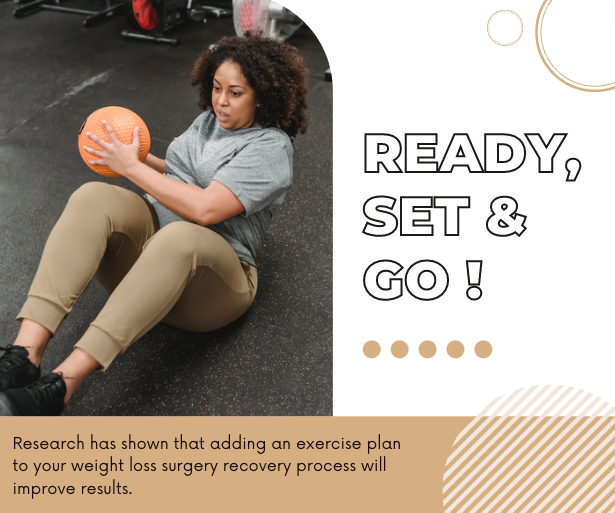Weight loss surgery, or bariatric surgery, can be a life-changing procedure for individuals struggling with obesity. While it offers significant health benefits, understanding the recovery process is crucial for a successful outcome. This article discusses weight loss surgery recovery time, the healing process, and the essential role of nutrition and exercise in ensuring long-term success.
Recovery Time: A Timeline
Weight loss surgery recovery time varies depending on the type of procedure and individual factors. Generally, patients can expect the following timeline:
- Hospital stay: 1 to 4 days post-surgery, depending on the procedure and patient’s overall health.
- Return to work: Typically, 2 to 4 weeks after surgery, depending on the nature of the job and the patient’s recovery progress.
- Total recovery: Most patients recover within 6 to 8 weeks, though individual experiences may vary.
Remember that each patient’s recovery is unique, and following your surgeon’s recommendations for optimal healing is essential.
The Healing Process: What to Expect
During the first few weeks of recovery, patients should expect discomfort, swelling, and possible bruising around the incision sites. Follow your surgeon’s wound care and pain management guidelines to ensure proper healing.
You may experience side effects such as constipation, fatigue, or mood changes as your body adjusts. Maintaining open communication with your healthcare team to address any concerns or complications is essential.
Post-Surgery Nutrition: A New Way of Eating
Nutrition plays a vital role in weight loss surgery recovery and long-term success. After surgery, patients must follow a strict diet plan to allow their stomachs to heal and adapt to their reduced size. The typical post-surgery diet consists of four stages.
- Clear liquids: For the first few days after surgery, patients consume clear liquids like water, broth, and sugar-free gelatin.
- Pureed foods: After tolerating clear liquids, patients transition to pureed foods, such as smooth soups, yogurt, and applesauce, for 2 to 4 weeks.
- Soft foods: Patients can introduce soft, easily chewable foods, like cooked vegetables, eggs, and fish, gradually over the next 4 to 6 weeks.
- Solid foods: Eventually, patients can resume a regular diet focusing on nutrient-dense, low-calorie foods and appropriate portions.
Following your surgeon’s and dietitian’s guidelines for post-surgery nutrition is crucial, including eating slowly, chewing thoroughly, and avoiding high-calorie, high-fat, and high-sugar foods.
Exercise: A Key Component of Recovery and Success
Incorporating regular physical activity into your lifestyle after weight loss surgery is essential for long-term success. Exercise not only aids in weight loss but also improves mood, enhances muscle tone, and boosts overall health.
Start with gentle exercises, such as walking, as soon as your surgeon approves, gradually increasing the intensity and duration of your workouts. Aim to incorporate a mix of cardiovascular exercise, strength training, and flexibility exercises, and consult with your healthcare team to develop a tailored exercise plan that meets your needs.
Understanding weight loss surgery recovery time, the healing process and the importance of post-surgery nutrition and exercise is crucial for long-term success. By following your healthcare team’s recommendations and committing to changing your habits. If you are interested in weight loss or bariatric surgery, contact our offices at 281-419-8400 or book online.

